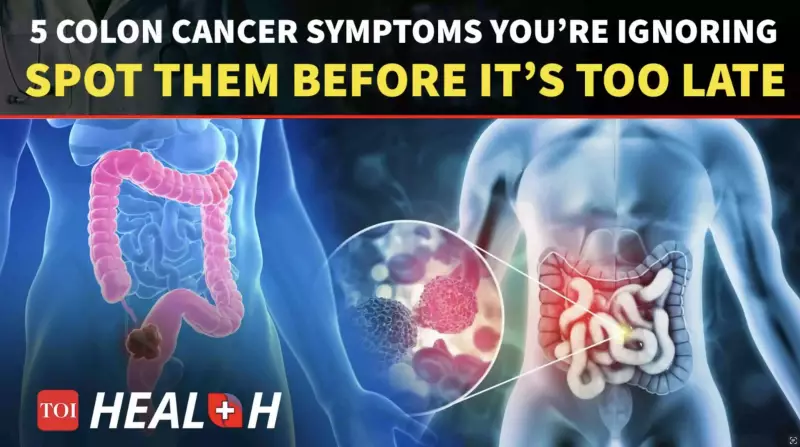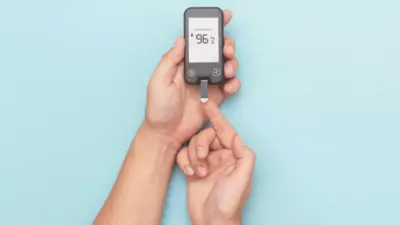
Colon cancer often develops silently, with symptoms that many dismiss as minor digestive issues. However, recognizing these subtle warning signs could be the difference between early detection and advanced disease, according to renowned surgical oncologist Dr. Deep Goel.
The Silent Killers: Symptoms You Should Never Ignore
Dr. Goel emphasizes that colon cancer doesn't always present with dramatic symptoms. "Many patients come to me when it's too late because they ignored these subtle changes in their body," he explains. Here are the five hidden signs you need to watch for:
1. Unexplained Weight Loss That Creeps Up
When you're losing weight without trying, especially 5-10% of your body weight over 6 months, it's a red flag. Cancer cells consume your body's energy, leading to unintended weight loss even when eating normally.
2. Persistent Abdominal Discomfort
Frequent cramps, gas, pain, or that "full" feeling that won't go away could signal something more serious than indigestion. "If abdominal discomfort persists for more than two weeks, consult a doctor," advises Dr. Goel.
3. Changes in Bowel Habits That Linger
While occasional constipation or diarrhea is normal, persistent changes lasting several weeks need attention. Watch for alternating between constipation and diarrhea, or changes in stool consistency.
4. The Feeling of Incomplete Evacuation
That constant sensation that you haven't completely emptied your bowels, even after a bowel movement, could indicate a growth in the colon blocking proper elimination.
5. Unexplained Fatigue and Weakness
Chronic tiredness that doesn't improve with rest might be caused by slow, unnoticed blood loss in the stool, leading to anemia - a common colon cancer symptom.
Why Early Detection Matters
"The survival rate for early-stage colon cancer is over 90%, but drops significantly when detected late," stresses Dr. Goel. He recommends paying attention to your body's signals and not dismissing persistent changes as "just getting older" or "stress."
Regular screening becomes crucial after age 45, or earlier if you have risk factors like family history, inflammatory bowel disease, or a sedentary lifestyle with poor dietary habits.
Remember: These symptoms don't automatically mean cancer, but they warrant medical consultation. Your vigilance today could save your life tomorrow.





